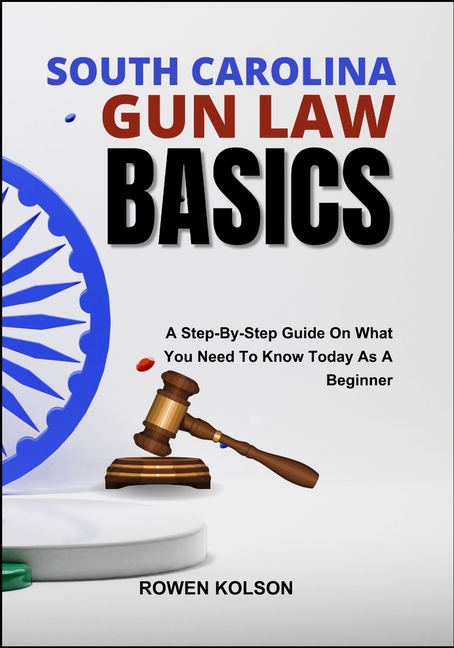Description
South Carolina, like much of the American South, has a long-standing tradition of gun ownership. Firearms have historically been integral to hunting, sport shooting, self-defense, and, controversially, the preservation of personal and regional autonomy. In rural areas especially, guns are viewed not only as tools but as symbols of independence and self-reliance. These cultural attitudes have heavily influenced state lawmakers and the general legal environment surrounding firearms.
Legally, South Carolina operates under a combination of federal and state regulations. While federal gun laws set a baseline-regulating aspects such as background checks, prohibitions for certain individuals, and standards for gun dealers-states like South Carolina have considerable autonomy in defining their own rules for concealed carry, open carry, self-defense, and gun-free zones. Over the past few decades, South Carolina's legislature has enacted various laws designed to expand gun rights, though not without limitations or controversy.
The South Carolina Code of Laws, primarily Title 16 (Crimes and Offenses) and Title 23 (Law Enforcement and Public Safety), outlines the state's gun statutes. Notably, South Carolina is a "shall-issue" state for concealed weapon permits (CWPs), meaning the state must issue a permit to qualified applicants who meet specific legal criteria. In 2021, the state enacted legislation permitting open carry of handguns with a permit, marking a significant shift from prior law. This move aligned South Carolina more closely with neighboring states in terms of gun rights but also sparked debates over public safety and law enforcement burdens.
Self-defense laws also play a crucial role in South Carolina's legal framework. The state recognizes the Castle Doctrine, allowing individuals to use deadly force in their homes without a duty to retreat. Moreover, South Carolina has a Stand Your Ground law, which extends the right to use deadly force without retreat in any place a person is legally permitted to be, provided they are not engaged in unlawful activity and are facing an imminent threat of death or serious bodily harm.
Recent years have seen renewed debate over gun laws in South Carolina, driven by national mass shootings, local incidents of gun violence, and evolving political dynamics. Gun control advocates have pushed for measures such as universal background checks, red flag laws, and limitations on high-capacity magazines, while gun rights proponents argue for constitutional carry laws (permitless carry) and further deregulation. These tensions underscore the complexity of firearm legislation in the state-a realm where legal codes intersect with deeply personal beliefs and societal concerns.
Understanding South Carolina gun law thus involves more than parsing legal language. It demands attention to ongoing political debates, court rulings, and the lived experiences of South Carolinians. Whether viewed through the lens of public safety, constitutional rights, or cultural identity, firearms remain a potent and polarizing issue in the Palmetto State. This introduction serves as a foundation for exploring the specifics of South Carolina's gun statutes, enforcement practices, and the evolving legal landscape in which they operate.
Product Details
- Jun 23, 2025 Pub Date:
- 9798289356079 ISBN-10:
- 9798289356079 ISBN-13:
- English Language




